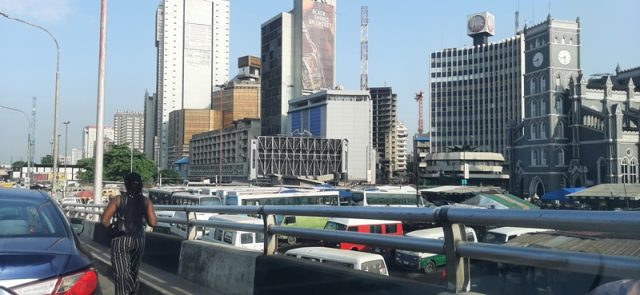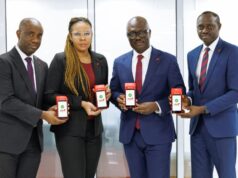…Nigeria has one of the lowest public expenditure and revenue levels in the world, undermining the Government’s ability to improve service delivery
MON, 21 NOV 2022-theGBJournal | Macroeconomic and fiscal reforms are urgently needed to lift Nigeria’s development outcomes, which are severely constrained by inefficient use of resources, argues the new Nigeria Public Finance Review report released today.
For years, a large share of Nigeria’s resources have financed inefficient and regressive subsidies for petrol, electricity, and foreign exchange. Not all these subsidies are accounted for in the budget, which makes them difficult to track and scrutinize.
However, available data suggest that these subsidies, which accounted for more than the amount spent on education, health, and social protection in 2021, benefit primarily wealthy households. They also distort incentives, discourage investment, and crowd-out spending on pro-poor programs, thereby hindering progress in Nigeria’s social development.
Nigeria has one of the lowest public expenditure and revenue levels in the world, undermining the Government’s ability to improve service delivery. Between 2015 and 2021, total public spending in Nigeria averaged 12 percent of gross domestic product (GDP), less than half the world average of 30 percent.
Improving service delivery requires more resources. Therefore, one of the most critical aspect of meeting Nigeria’s vast development needs lies in raising more revenues, as the country ranks consistently among the world’s poorest-performing countries in terms of public revenue mobilization, with total revenues averaging just 7 percent of GDP in 2015-2021 — far below the global average of 24 percent. Low tax rates and poor utilization of tax bases, weaknesses in tax administration, and large deductions from oil revenues are constraining Nigeria’s inability to generate enough revenues.
“Nigeria’s government urgently needs to strengthen fiscal management, create a unified, stable market-based exchange rate, phase out its costly, regressive fuel subsidy and rationalize preferential trade restrictions and tax exemptions. These would lay the groundwork for the increases in public revenues and spending needed to improve development outcomes,” said World Bank Group President David Malpass. “Decisive moves would significantly improve the business enabling environment in Nigeria, attract foreign direct investment, and reduce inflation. The World Bank is ready to increase support to Nigeria as it designs and implements these critical reforms.”
“Nigeria is at a critical historical juncture and has a choice to make,” said Nigeria Country Director Shubham Chaudhuri. “A child born in Nigeria today will be only 36 percent as productive when she grows up as she could be if she had access to effective public education and health services, and has a life expectancy of only 55 years. These stark indicators illustrate the urgency for action by Nigeria’s policymakers to improve the macroeconomic and fiscal framework, so as to sustainably enhance the quality of spending and public services at Federal and State levels.”
The Nigeria Public Finance Review was conducted at the request of the Federal Ministry of Finance, Budget, and National Planning, and prepared in close collaboration with the Budget Office of the Federation, the National Bureau of Statistics, the Office of the Accountant General of the Federation, and the Debt Management Office. It aims to inform the public debate on Nigeria’s future by providing a thorough analysis of the fiscal performance and necessary reforms needed to establish a robust and sustainable development model that provides broad-based economic opportunities for all Nigerians.
* The World Bank’s International Development Association (IDA), established in 1960, helps the world’s poorest countries by providing grants and low to zero-interest loans for projects and programs that boost economic growth, reduce poverty, and improve poor people’s lives. IDA is one of the largest sources of assistance for the world’s 76 poorest countries, 39 of which are in Africa. Resources from IDA bring positive change to the 1.6 billion people who live in IDA countries. Since 1960, IDA has supported development work in 113 countries. Annual commitments have averaged about $21 billion over the last three years, with about 61 percent going to Africa.
Twitter-@theGBJournal|Facebook-The Government and Business Journal|email: gbj@govbusinessjournal.ng|govandbusinessj@gmail.com










